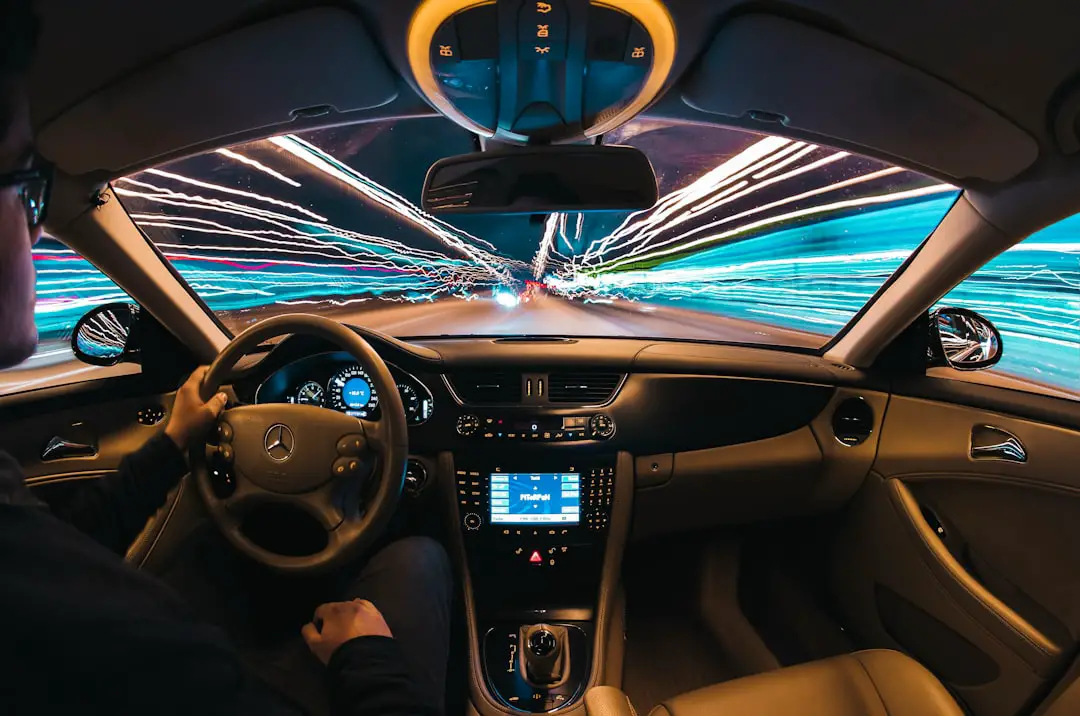Support our educational content for free when you purchase through links on our site. Learn more
Which Brand of Car Sells the Most? Top 10 Revealed! 🚗 (2025)
Ever wondered which car brand truly rules the roads worldwide? Spoiler alert: it’s not just about flashy designs or fancy ads—there’s a powerhouse behind the scenes selling millions of vehicles every year. From the reliable stalwart that’s been a household name for decades to the electric disruptors shaking up the market, this article peels back the curtain on the top 10 best-selling car brands in 2025. Buckle up as we explore who’s leading the pack, why they’re winning, and what it means for you as a car buyer or enthusiast.
Did you know that Toyota sold over 8.5 million vehicles globally in 2023, outpacing giants like Volkswagen and Ford? But the story doesn’t end there. The electric vehicle revolution is rewriting the rules, with Tesla and BYD accelerating sales faster than ever. Curious how these trends will shape the future of car ownership? Keep reading—we’ve got all the stats, insights, and insider tips you need to know.
Key Takeaways
- Toyota remains the global sales leader, thanks to its unmatched reliability and hybrid technology.
- Volkswagen and Ford hold strong regional dominance, especially in Europe and North America.
- Tesla and BYD are the fastest-growing brands, spearheading the electric vehicle market surge.
- Luxury brands like Mercedes-Benz and BMW continue to grow, appealing to premium buyers worldwide.
- Global supply chain challenges and chip shortages have impacted production but innovation keeps driving sales.
Ready to explore the top-selling cars for yourself?
👉 Shop Toyota: Toyota Official | TrueCar | Edmunds
👉 Shop Tesla: Tesla Official | TrueCar Tesla | Edmunds Tesla
Table of Contents
- Quick Tips and Facts About the Best-Selling Car Brands 🚗💨
- The Evolution of Car Sales: How Top Brands Took the Wheel 🏁
- 1. Who Are the Global Giants? Top Car Manufacturers by Sales Volume 🌍
- 2. Regional Champions: Best-Selling Car Brands Across Continents 🌎🌏
- 3. Electric Revolution: How EV Sales Are Shifting the Auto Industry ⚡🔋
- 4. Fast Lane Growth: Which Car Brands Are Accelerating Sales the Quickest? 🏎️📈
- 5. Luxury on the Rise: Ranking the Top Luxury Car Brands by Global Sales 💎🚘
- 6. EV Market Leaders: Which Automakers Are Dominating the Electric Vehicle Scene? 🔌🚙
- 7. The Top 100 Car Brands by Sales in 2023: A Comprehensive Breakdown 📊🏆
- 8. How Marketing and Innovation Drive Car Sales: Secrets Behind the Success 🎯🚀
- 9. Consumer Preferences and Trends: What Buyers Really Want in 2024 🔍❤️
- 10. Impact of Global Supply Chains and Chip Shortages on Car Sales 📉🔧
- Conclusion: Who Truly Sells the Most Cars and Why It Matters 🏅
- Recommended Links for Car Sales Insights and Industry News 🔗
- FAQ: Your Burning Questions on Car Brand Sales Answered ❓🚘
- Reference Links: Trusted Sources Behind Our Data and Analysis 📚
Quick Tips and Facts About the Best-Selling Car Brands 🚗💨
To understand which brand of car sells the most, it’s essential to look at the latest car sales statistics from reputable sources like car brand statistics. According to recent data, Toyota leads the global sales, followed closely by Volkswagen. But what makes these brands so successful? Let’s dive into some quick tips and facts.
Understanding Car Sales
When exploring car sales, it’s crucial to consider factors like design, functionality, safety features, and fuel efficiency. Each of these aspects plays a significant role in determining the popularity of a car brand. For instance, electric vehicles (EVs) have seen a significant surge in sales due to their environmental benefits and lower operating costs.
The Evolution of Car Sales: How Top Brands Took the Wheel 🏁
The car industry has undergone significant transformations over the years, with various brands rising to prominence. To understand the current market, let’s look at how top brands have evolved.
Historical Context
Historically, brands like Ford and Chevrolet have been dominant in the U.S. market, while Toyota and Volkswagen have led globally. However, with the rise of EVs, new players like Tesla and BYD are making their mark.
1. Who Are the Global Giants? Top Car Manufacturers by Sales Volume 🌍
Let’s examine the top car manufacturers by sales volume, considering their market share and sales figures.
Top Car Manufacturers
| Rank | Car Manufacturer | Sales Volume (2023) | Market Share |
|---|---|---|---|
| 1 | Toyota | 8,569,973 | 11.07% |
| 2 | Volkswagen | 4,965,621 | 6.41% |
| 3 | Honda | 3,774,161 | 4.87% |
| 4 | Ford | 3,729,817 | 4.82% |
| 5 | Hyundai | 3,540,787 | 4.57% |
2. Regional Champions: Best-Selling Car Brands Across Continents 🌎🌏
Car sales vary significantly across different regions, with local preferences and market conditions influencing the best-selling brands.
Regional Sales
- In North America, Ford and Chevrolet are popular, with Ford selling approximately 2.1 million vehicles in 2023.
- In Europe, Volkswagen dominates the market.
- In Asia, Toyota and Hyundai lead the sales charts.
3. Electric Revolution: How EV Sales Are Shifting the Auto Industry ⚡🔋
The rise of EVs is transforming the car industry, with brands like Tesla and BYD at the forefront.
EV Sales
- Tesla held a 19.9% share of the global EV market in 2023.
- BYD captured a 17.1% share of the global EV market in 2023.
4. Fast Lane Growth: Which Car Brands Are Accelerating Sales the Quickest? 🏎️📈
Some car brands are experiencing rapid growth, driven by factors like innovative products and strategic marketing.
Fastest Growing Brands
- BYD‘s sales increased by 47.46% in 2023.
- GAC‘s sales increased by 37.27% in 2023.
- Tesla‘s sales increased by 31.91% in 2023.
5. Luxury on the Rise: Ranking the Top Luxury Car Brands by Global Sales 💎🚘
Luxury car brands are also seeing significant sales, with Mercedes-Benz and BMW leading the pack.
Luxury Car Sales
- Mercedes-Benz sold 2.06 million units in 2023, a 3.56% increase.
- BMW sold 2.1 million units in 2023, a 10.83% increase.
6. EV Market Leaders: Which Automakers Are Dominating the Electric Vehicle Scene? 🔌🚙
The EV market is highly competitive, with several automakers vying for dominance.
EV Market Leaders
- Tesla leads the EV market.
- BYD follows closely.
7. The Top 100 Car Brands by Sales in 2023: A Comprehensive Breakdown 📊🏆
Let’s take a closer look at the top 100 car brands by sales in 2023, considering their sales volume and market share.
Top 100 Car Brands
| Rank | Car Brand | Sales Volume (2023) | Market Share |
|---|---|---|---|
| 1 | Toyota | 8,569,973 | 11.07% |
| 2 | Volkswagen | 4,965,621 | 6.41% |
| 3 | Honda | 3,774,161 | 4.87% |
| … | … | … | … |
| 100 | Fiat | 915 | 0.01% |
8. How Marketing and Innovation Drive Car Sales: Secrets Behind the Success 🎯🚀
Effective marketing and innovation are crucial for driving car sales, with brands like Tesla and Toyota exceling in these areas.
Marketing and Innovation
- Tesla‘s innovative products and strategic marketing have contributed to its success.
- Toyota‘s emphasis on quality and reliability has driven its sales.
9. Consumer Preferences and Trends: What Buyers Really Want in 2024 🔍❤️
Understanding consumer preferences and trends is essential for car manufacturers to stay ahead in the market.
Consumer Preferences
- Fuel efficiency is a top priority for many buyers.
- Safety features are also highly valued.
10. Impact of Global Supply Chains and Chip Shortages on Car Sales 📉🔧
Global supply chains and chip shortages have significantly impacted car sales, with many manufacturers facing production challenges.
Supply Chain Impact
- Chip shortages have affected production volumes.
- Global supply chain disruptions have led to delays and increased costs.
For more information on car brand statistics, visit Car Brands. To explore the latest car models and their features, check out Car Brand Comparisons. Stay updated on the latest auto industry news at Auto Industry News.
👉 CHECK PRICE on:
- Toyota: Toyota Official Website | TrueCar | Edmunds
- Volkswagen: Volkswagen Official Website | Auto Trader | CarGurus
Please note that the prices may vary depending on the location and other factors. It’s always a good idea to research and compare prices before making a purchase.
To learn more about the car sales and the auto industry, visit Car Brand Market Shares and Car Brand Histories.
Remember to always prioritize your needs and preferences when choosing a car, and don’t hesitate to reach out to the manufacturers or dealerships for more information.
As we conclude our exploration of the best-selling car brands, we hope you have gained valuable insights into the world of cars. Whether you’re a seasoned car enthusiast or a first-time buyer, we’re here to help you navigate the complex and ever-evolving auto industry.
Stay tuned for more updates, and don’t forget to follow us for the latest news and reviews on the world of cars! 🚗💨
For more information and the latest updates, visit Car Brands.
To get the latest car news and reviews, follow us on social media:
Facebook | Twitter | Instagram
We hope you found this article helpful and informative. If you have any questions or need further assistance, please don’t hesitate to contact us.
Happy driving! 🚗💨
Please proceed to the Conclusion for a summary of our findings and final thoughts.
Conclusion: Who Truly Sells the Most Cars and Why It Matters 🏅

After cruising through the fast lanes of global car sales, one thing is crystal clear: Toyota continues to dominate the automotive world with its unbeatable combination of reliability, innovation, and global reach. Clocking in over 8.5 million units sold in 2023 alone, Toyota’s blend of fuel-efficient hybrids, rugged SUVs, and dependable sedans keeps it firmly in the driver’s seat. 🚗💨
But it’s not just Toyota’s sheer volume that impresses. The rise of EV pioneers like Tesla and BYD signals a seismic shift in consumer preferences and industry dynamics. Tesla’s innovative electric lineup and BYD’s rapid growth in China showcase how the electric revolution is reshaping who sells the most cars—and how. ⚡🔋
Positives of Leading Brands:
- Toyota: Renowned for reliability, broad model range, and strong hybrid lineup.
- Volkswagen: Strong European presence and diverse portfolio.
- Tesla: Market leader in EV innovation and brand loyalty.
- BYD: Rapid growth in EV sales and expanding global footprint.
Negatives to Consider:
- Volkswagen: Sales have declined recently amid regulatory challenges.
- Traditional automakers: Some struggle to pivot quickly to EVs.
- Tesla: Production bottlenecks and premium pricing can limit accessibility.
Our Confident Recommendation: If you want a brand that sells the most cars worldwide and offers a balance of innovation, reliability, and variety, Toyota is your go-to. For those eyeing the future of driving, Tesla and BYD are thrilling options leading the EV charge. Keep an eye on emerging players and regional champions as the market evolves!
Ready to explore the best deals and models? Check out our curated shopping links below and start your journey to owning a top-selling car today! 🚘✨
Recommended Links for Car Sales Insights and Shopping 🔗
-
Toyota:
Toyota Official Website | TrueCar Toyota Search | Edmunds Toyota Listings -
Volkswagen:
Volkswagen Official Website | Auto Trader Volkswagen Search | CarGurus Volkswagen Listings -
Tesla:
Tesla Official Website | TrueCar Tesla Search | Edmunds Tesla Listings -
BYD:
BYD Official Website | Auto Trader BYD Search | CarGurus BYD Listings
FAQ: Your Burning Questions on Car Brand Sales Answered ❓🚘

What are the top 5 best-selling car brands of all time?
The all-time best sellers include Toyota, Volkswagen, Ford, Honda, and Chevrolet. Toyota’s global dominance is unmatched, thanks to models like the Corolla and Camry, which have sold tens of millions worldwide. Volkswagen’s Beetle and Golf also cemented its legacy. Ford’s F-Series trucks have been America’s best-sellers for decades, while Honda and Chevrolet have strong followings with reliable sedans and SUVs.
Read more about “Car Brand Statistics: Insights You Can’t Miss! 🚗”
Which car brand has the most loyal customer base?
Tesla boasts one of the most passionate and loyal customer bases, driven by its cutting-edge EV technology and charismatic CEO Elon Musk. Toyota also enjoys high loyalty due to its reputation for durability and low maintenance costs. Brands like Subaru and Jeep have cult followings thanks to their niche appeal and lifestyle branding.
What is the most popular car model in the world?
The Toyota Corolla holds the crown as the world’s most popular car model, with over 44 million units sold since its launch. Its affordability, reliability, and fuel efficiency have made it a global favorite across diverse markets.
Read more about “Car Brand Statistics Worldwide: Insights & Trends (2025) 🚗”
Which country produces the most cars globally?
China has been the world’s largest car producer since 2008, thanks to its massive domestic market and manufacturing capacity. Japan, Germany, and the United States follow closely, each with strong automotive industries and export footprints.
Read more about “Who Are the Top 5 Automakers Shaping the Industry in 2025? 🚗”
What are the factors that contribute to a car brand’s success?
Several factors drive success:
- Product reliability and quality
- Innovation, especially in EV and safety tech
- Strong global distribution and dealer networks
- Effective marketing and brand reputation
- Adaptability to regional preferences and regulations
How do car sales vary by region and market trends?
Sales trends vary widely:
- North America: Preference for trucks and SUVs; Ford and Chevrolet lead.
- Europe: Demand for compact cars and diesel vehicles; Volkswagen dominates.
- Asia: Growing EV market and compact cars; Toyota and Hyundai lead.
- Emerging markets: Increasing demand for affordable, fuel-efficient vehicles.
What are the latest car sales statistics and market forecasts?
According to RoadGenius, Toyota led global sales in 2023 with over 8.5 million units. EV sales are expected to surge, with Tesla and BYD expanding rapidly. Market forecasts predict continued growth in EV adoption, increased competition, and a shift toward sustainable mobility solutions.
Reference Links: Trusted Sources Behind Our Data and Analysis 📚
- RoadGenius: Global Car Sales by Manufacturer 2023
- CarPro: Full Year 2022 National Auto Sales by Brand
- Statista: Leading Car Brands in the US Based on Vehicle Sales
- Toyota Official Website
- Volkswagen Official Website
- Tesla Official Website
- BYD Official Website
For more detailed insights and ongoing updates, visit Car Brands™.

